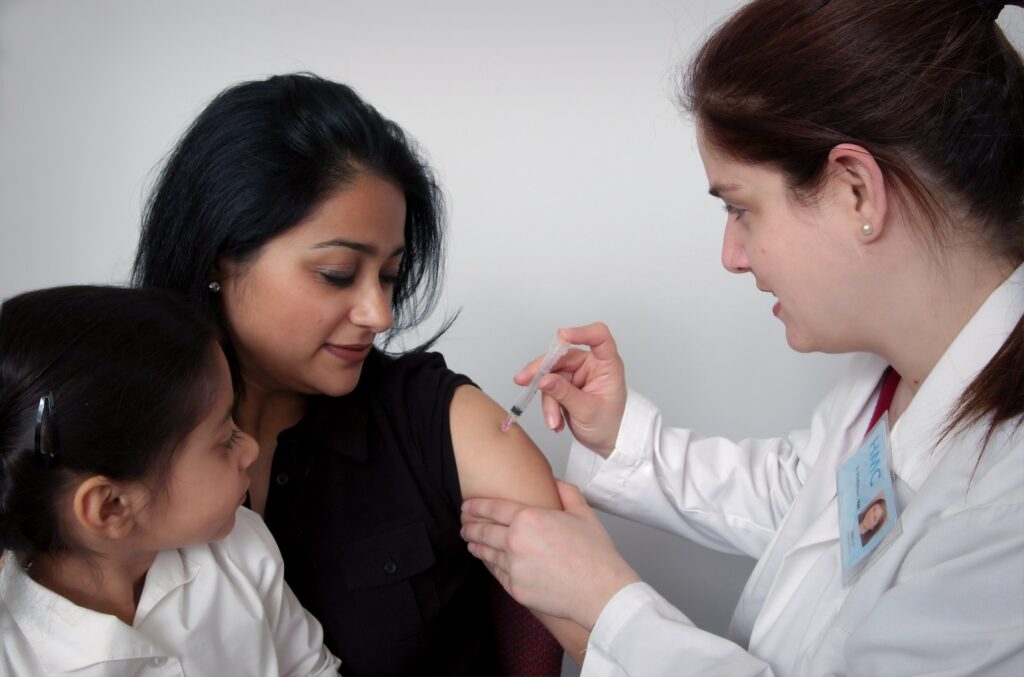
As we head into the holiday season, we are seeing a return of seasonal respiratory illnesses, including a high number of COVID-19 cases in the region. The Eastern Ontario Health Unit (EOHU) is urging everyone eligible for their next dose of COVID-19 and influenza vaccines to receive them as soon as possible. Vaccination is a key step in preventing severe illness and paired with other illness prevention practices, can help protect your family from severe respiratory illnesses this season.
Staying up to date with your vaccines
The flu shot and COVID-19 vaccine are available to people 6 months of age and older, and it’s safe to get both at the same time. Ensuring you and your loved ones are up to date on these vaccines will help prevent infections and hospitalizations from these illnesses. The updated COVID-19 vaccines provide protection against the XBB.1.5. Omicron subvariant and other related subvariants that are currently circulating in the community. Both the COVID-19 and flu vaccines are available through participating pharmacies and healthcare providers. Appointments for the COVID-19 vaccine can also be booked at the EOHU’s offices at https://covid-19.ontario.ca/book-vaccine/ or by calling the Provincial Vaccine Contact Centre at 1-833-943-3900. Flu vaccine appointments for children under 5 years old and their household members can also be booked at the EOHU’s offices at https://booking.eohu.ca/.
“Vaccines can take up to two weeks to provide strong protection, so it is important you get your vaccines as soon as possible, to help protect you through all your upcoming gatherings,” says Dr. Paul Roumeliotis, Medical Officer of Health at the EOHU. “Getting your vaccines can prevent severe illness and help relieve the burden on our hospitals and healthcare system, and ensure everyone has a safe and healthy holiday season.”
Other tips to decrease your chances of getting sick and spreading illness
In addition to staying up to date on your vaccines, there are other measures you can take to prevent the spread of germs, such as:
- Covering your mouth with your sleeve or elbow when you cough or sneeze
- Washing your hands frequently with soap and water, or using hand sanitizer
- Not touching your eyes, nose, and mouth with unwashed hands
- Disinfecting commonly touched areas, like door handles and counters
- Maintaining and optimizing indoor air quality, such as with an air purifier
- If you are at a high-risk of severe illness, wearing a mask when out in crowded indoor settings
- Staying home if you are sick, until you no longer have a fever and your other symptoms have been improving for 24 hours for respiratory symptoms (48 hours if gastro-intestinal symptoms) and wearing a mask for ten days after the onset of respiratory symptoms, if you must go out
For those who are at a high risk of severe illness from respiratory illnesses, anti-viral medications are also available for COVID-19 and the flu, should you become ill. Speak with your health care provider to learn more and to find out if you are eligible.
For more information about respiratory illnesses, visit EOHU.ca/Respiratory.













